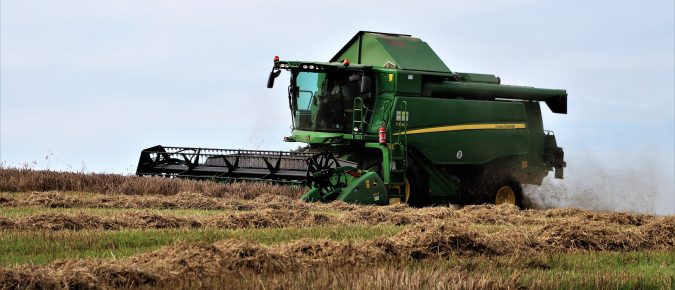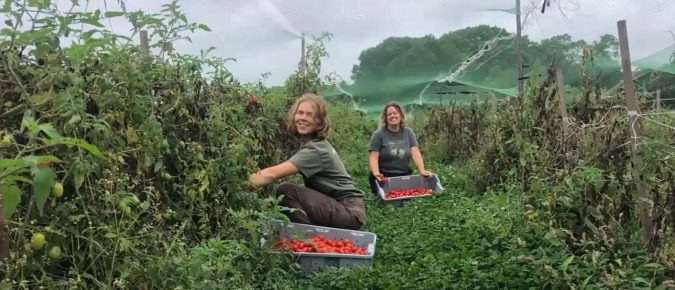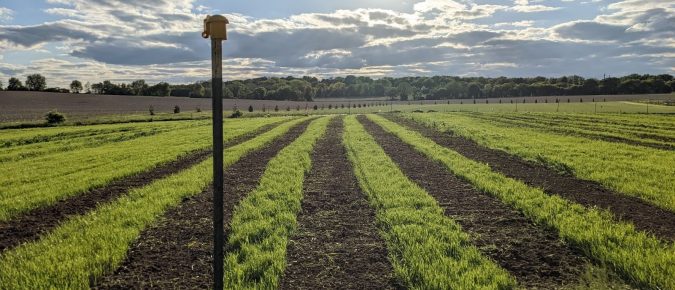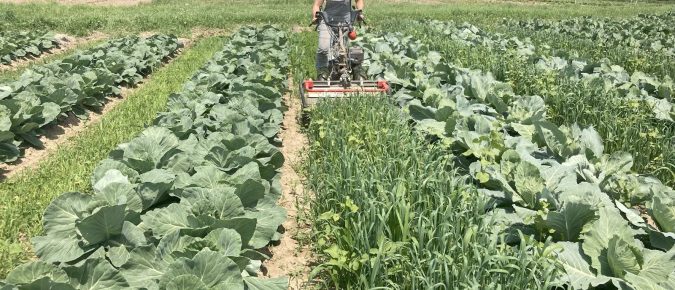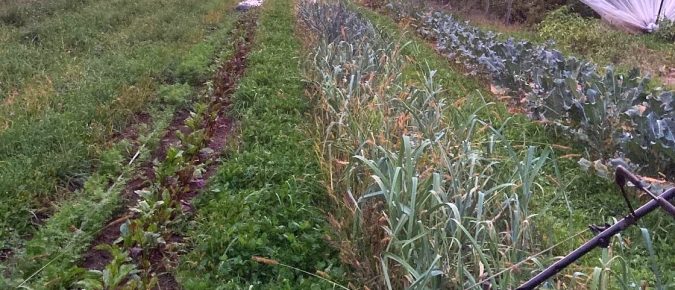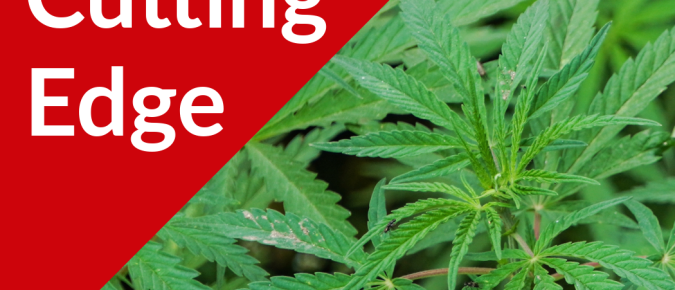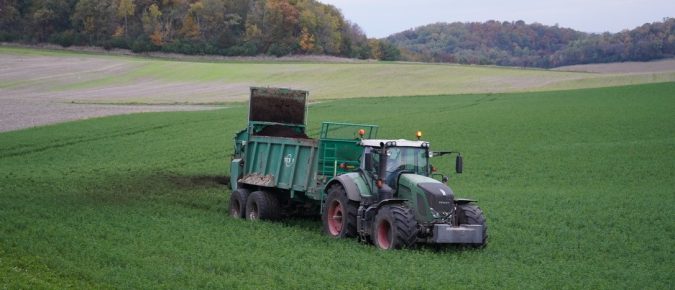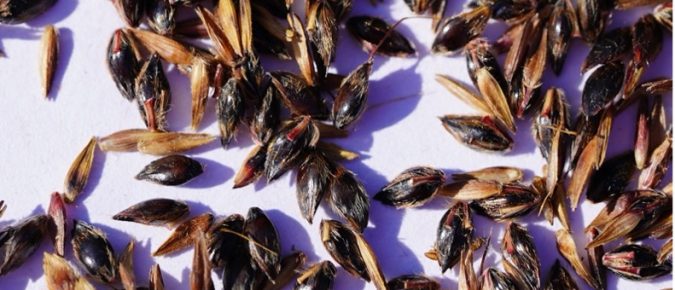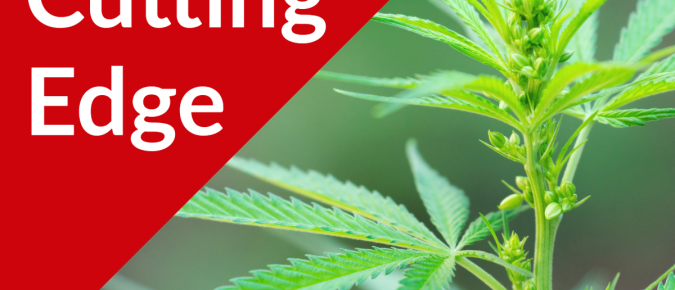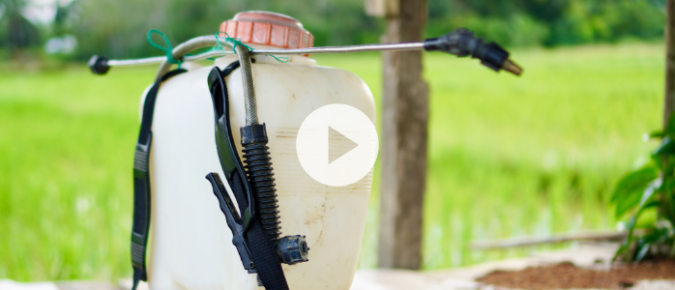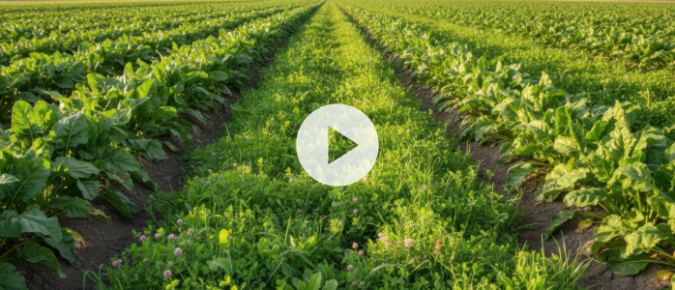Rodrigo Werle, Extension Weed Scientist and Daniel H. Smith, Nutrient and Pest Management Program Manager, demonstrate where weed seeds hide in a combine and how to clean a combine for weed seed management.
Most farmers are familiar with the benefits of cover crops: they reduce erosion, improve soil health, and help suppress weeds. Cover crops are often incorporated into fields as part of crop rotations, but they can also be planted in the aisles between cash crop beds, providing cover during a time of year when the soil is typically bare. These “living aisles” add additional advantages, such as reducing mud during rainy periods, allowing farmers to access beds when the ground is wet, and keeping harvest bins cleaner. Depending on the species used, living aisles may also be allowed to grow into beds after harvest to provide winter cover.
Most farmers are familiar with the benefits of cover crops: they reduce erosion, improve soil health, and help suppress weeds. Cover crops are often incorporated into fields as part of crop rotations, but they can also be planted in the aisles between cash crop beds, providing cover during a time of year when the soil is typically bare. These “living aisles” add additional advantages, such as reducing mud during rainy periods, allowing farmers to access beds when the ground is wet, and keeping harvest bins cleaner. Depending on the species used, living aisles may also be allowed to grow into beds after harvest to provide winter cover.
Most farmers are familiar with the benefits of cover crops: they reduce erosion, improve soil health, and help suppress weeds. Cover crops are often incorporated into fields as part of crop rotations, but they can also be planted in the aisles between cash crop beds, providing cover during a time of year when the soil is typically bare. These “living aisles” add additional advantages, such as reducing mud during rainy periods, allowing farmers to access beds when the ground is wet, and keeping harvest bins cleaner. Depending on the species used, living aisles may also be allowed to grow into beds after harvest to provide winter cover.
Most farmers are familiar with the benefits of cover crops: they reduce erosion, improve soil health, and help suppress weeds. Cover crops are often incorporated into fields as part of crop rotations, but they can also be planted in the aisles between cash crop beds, providing cover during a time of year when the soil is typically bare. These “living aisles” add additional advantages, such as reducing mud during rainy periods, allowing farmers to access beds when the ground is wet, and keeping harvest bins cleaner. Depending on the species used, living aisles may also be allowed to grow into beds after harvest to provide winter cover.
Dr. Shelby Ellison, Assistant Professor in the Department of Plant and Agroecosystem Sciences at UW-Madison, provides an update on the research priorities her lab is focused on related to hemp. Resources Midwest Hemp Database – High Cannabinoid Midwest Hemp Database – Grain and Fiber
Johnsongrass, a highly invasive perennial grass that invades and impacts agricultural and natural areas throughout the United States, is popping up in southern Wisconsin along roadsides, agricultural fields and recent restoration activities. Learn how you can help monitor the invasive species.
An update on state and federal hemp regulations currently being debated and their potential impacts on the cannabis industry in Wisconsin and beyond. Our guests are Dr. Shelby Ellison and Rob Pero. Dr. Shelby Ellison is an Assistant Professor in the Department of Plant and Agroecosystem Sciences at UW-Madison whose research focuses on preserving, characterizing, […]
This article walks through the different parts of and considerations around calibrating and using a backpack sprayer in diversified vegetable systems.
This article walks through the timing, tools, and methods for seeding cover crops in diversified vegetable crop systems.


